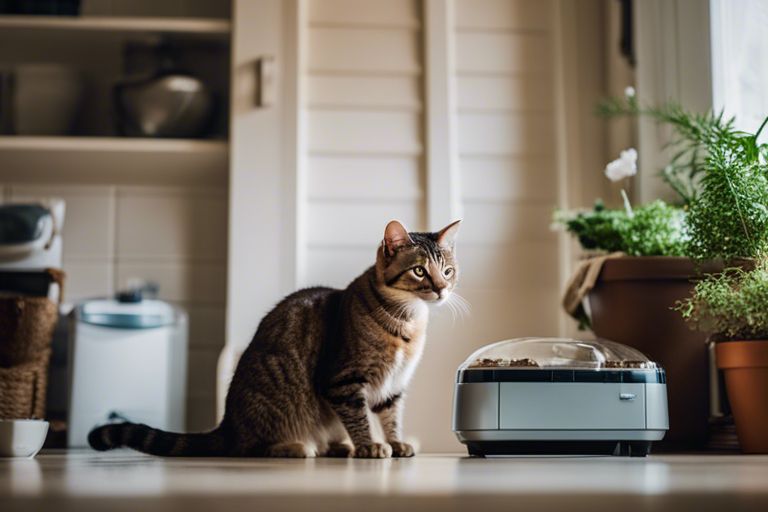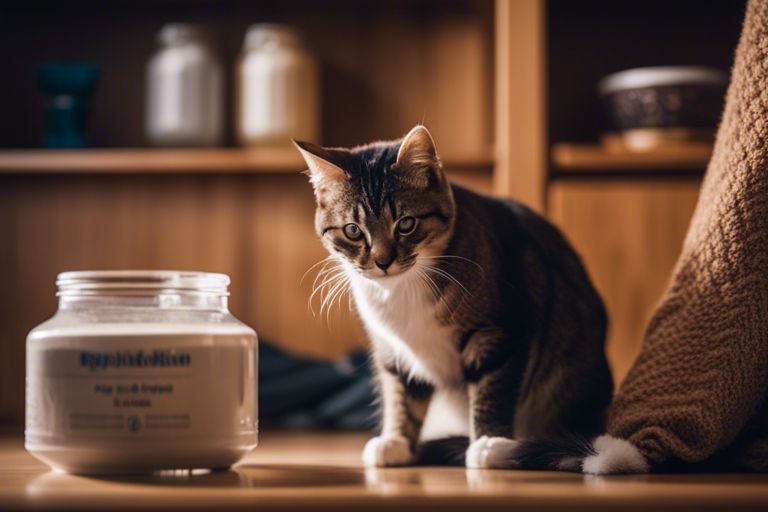Enigmatic as our feline companions may be, it’s important to know how to recognize when something might be amiss with your cat’s health. While the occasional cough or sneeze might not be cause for immediate concern, it’s important to be able to distinguish between normal behavior and signs of a potential health issue. In this article, we’ll discuss the common causes of coughing and sneezing in cats, when you should be worried, and what steps you should take to ensure your cat’s well-being.
Key Takeaways:
- Coughing and sneezing can be normal for cats. Just like humans, cats can occasionally have a cough or sneeze due to dust, allergies, or minor respiratory irritants.
- Repetitive or persistent coughing or sneezing may indicate a health issue. If your cat is constantly coughing or sneezing, it could be a sign of a respiratory infection, asthma, or other underlying health problems.
- Exposure to smoke, chemicals, or other irritants can cause coughing and sneezing. Keep your cat away from secondhand smoke, strong chemical fumes, and other potential respiratory irritants to minimize these symptoms.
- Regular veterinary check-ups can help address coughing and sneezing issues. It’s important to monitor your cat’s overall health and seek professional advice if you notice any concerning symptoms, including persistent coughing or sneezing.
- Keeping your home clean and minimizing potential allergens can reduce coughing and sneezing in cats. Regularly cleaning your cat’s living space and minimizing dust, pollen, and other allergens can help minimize respiratory issues in your cat.
Understanding Cat’s Cough and Sneeze
While it can be concerning to see your cat coughing or sneezing, it’s important to understand that these behaviors are not uncommon in felines. However, it’s crucial to know the difference between normal and abnormal respiratory symptoms in cats. In this chapter, we will discuss the typical respiratory behavior of cats and how to recognize abnormal symptoms that may require veterinary attention.
Normal Feline Respiratory Behavior
It’s normal for your cat to cough or sneeze occasionally, just like it is for humans. Cats may cough or sneeze to clear their airways or expel irritants. Additionally, occasional coughing or sneezing may occur after a cat has been playing or grooming, especially if they have inhaled dust or foreign particles. In most cases, these behaviors are nothing to worry about and are a part of your cat’s natural respiratory process.
Recognizing Abnormal Symptoms
However, if your cat is coughing or sneezing frequently, has difficulty breathing, or produces discharge from the nose or mouth, these are signs of abnormal respiratory symptoms that should not be ignored. Frequent or persistent coughing, sneezing, or wheezing could indicate an underlying health issue such as allergies, respiratory infections, asthma, or even heart disease. It’s essential to monitor your cat’s respiratory behavior and seek veterinary attention if you notice any concerning symptoms.

Common Causes of Coughing and Sneezing in Cats
If your cat is coughing and sneezing, it can be concerning. There are several common causes that could be behind these symptoms. In this section, we will discuss the most common reasons your cat may be experiencing coughing and sneezing. For more detailed information, you can also refer to this helpful blog post Cat Coughing, Sneezing & Wheezing | Clemmons Vet.
Environmental Allergens and Irritants
If your cat is exposed to environmental allergens and irritants such as pollen, dust, or smoke, it could be the cause of their coughing and sneezing. These allergens can irritate the respiratory system and lead to symptoms such as coughing and sneezing. It’s important to keep your home environment clean and free of potential irritants to help alleviate these symptoms. Additionally, regular veterinary check-ups can help you identify and address any environmental triggers that may be affecting your cat’s respiratory health.
Infectious Diseases and Parasites
Infectious diseases and parasites, such as feline viral respiratory infections or upper respiratory infections, can also be responsible for your cat’s coughing and sneezing. These conditions are highly contagious and can spread quickly among cats, so it’s crucial to keep your cat’s vaccinations up to date and to practice good hygiene and sanitation practices in your home. Additionally, prompt treatment of any identified infections or parasites can help alleviate your cat’s symptoms.
Other Health Conditions
There are several other health conditions that could be causing your cat to cough and sneeze, including asthma, heart disease, or dental issues. These conditions can be serious and may require immediate veterinary attention. It’s important to be aware of any other symptoms your cat may be experiencing and to seek professional veterinary advice to determine the underlying cause of your cat’s respiratory symptoms.
Diagnosis and Treatment
Noticing your cat coughing and sneezing may be a cause for concern, but it’s important to remember that there can be several reasons for these symptoms, some more serious than others. To properly diagnose and treat your cat, a visit to the veterinarian is essential.
When to Visit a Veterinarian
If you notice your cat coughing and sneezing frequently or if these symptoms are accompanied by other concerning signs such as difficulty breathing, fever, loss of appetite, or lethargy, it’s crucial to schedule a visit to the veterinarian right away. Certain underlying conditions, such as respiratory infections or even feline asthma, can worsen if left untreated, so it’s important not to delay seeking professional help.
Diagnostic Tests and Procedures
During your visit to the veterinarian, a thorough physical examination will be conducted to assess your cat’s overall health. In some cases, additional diagnostic tests such as blood work, x-rays, or cultures may be necessary to identify the underlying cause of your cat’s coughing and sneezing. These tests can help rule out more serious conditions such as heart disease, lung tumors, or infections.
Available Treatments and Home Care
Once the cause of your cat’s coughing and sneezing has been identified, your veterinarian will recommend the appropriate treatment. This may include medications such as antibiotics, antihistamines, or corticosteroids, depending on the diagnosis. Additionally, your veterinarian may provide guidance on home care, including environmental changes or additional supportive measures to help alleviate your cat’s symptoms. It’s important to follow your veterinarian’s recommendations closely to ensure the best outcome for your cat.
Prevention and Overall Wellness
Now that you know some of the common causes of coughing and sneezing in cats, let’s talk about how you can prevent these issues and maintain your cat’s overall wellness. By taking proactive measures, you can help keep your feline friend healthy and happy.
Vaccinations and Regular Health Check-ups
Ensuring that your cat is up to date on vaccinations is crucial for preventing respiratory infections and other illnesses. Regular health check-ups with your veterinarian are also important for detecting any potential health issues early on. Your vet can provide tailored recommendations for vaccinations and preventive care based on your cat’s age, lifestyle, and overall health.
Maintaining a Healthy Living Environment
Your cat’s living environment plays a significant role in their overall wellness. Keep your home clean and well-ventilated to minimize the presence of allergens, dust, and other potential respiratory irritants. Use cat-friendly cleaning products and regularly clean your cat’s bedding, toys, and litter box. Additionally, make sure your cat has access to clean, fresh water and a balanced diet to support their immune system and overall health.
By ensuring your cat receives regular vaccinations and health check-ups, and by maintaining a clean and healthy living environment, you can significantly reduce the risk of respiratory issues and other health problems. Your proactive approach to your cat’s care will not only benefit their well-being but also provide you with peace of mind. Remember, keeping a close eye on your cat’s health and making adjustments to their living environment as needed are key to ensuring they lead a long, healthy, and happy life.
Is it normal for my cat to cough and sneeze?
Presently, it is not uncommon for cats to experience occasional bouts of coughing and sneezing, particularly if they have been exposed to airborne irritants or allergens. However, if your cat is exhibiting persistent or severe symptoms, it may be a sign of an underlying health issue that requires veterinary attention. Respiratory infections, allergies, and other illnesses can all contribute to coughing and sneezing in cats. It’s important to monitor your cat’s symptoms closely and seek prompt veterinary care if you have concerns about their health. Your veterinarian can provide a proper diagnosis and recommend appropriate treatment to alleviate your cat’s symptoms and address any underlying health issues.
FAQ
Q: Is it normal for my cat to cough and sneeze?
A: Occasional coughing and sneezing in cats can be normal, especially if they have been exposed to dust or other irritants. However, if your cat is coughing and sneezing frequently or for an extended period of time, it could be a sign of an underlying health issue and should be evaluated by a veterinarian.
Q: What could be causing my cat to cough and sneeze?
A: Coughing and sneezing in cats can be caused by a variety of factors, including respiratory infections, allergies, foreign objects in the nasal passages, or even dental issues. It can also be a symptom of more serious conditions such as feline asthma or heart disease. A thorough examination by a veterinarian is necessary to determine the underlying cause.
Q: How can I help my cat if they are coughing and sneezing?
A: If your cat is coughing and sneezing, it’s important to make an appointment with a veterinarian for a proper diagnosis and treatment plan. In the meantime, you can help by keeping your cat in a clean and dust-free environment, ensuring they have access to fresh water, and monitoring their symptoms for any changes. Do not attempt to administer any medications without consulting a veterinarian first.

Jayley, a devoted cat enthusiast, also writer for other cat blog as well. She aims to dedicated to providing comprehensive information, insights, and advice on everything you’d ever want to know about our whiskered companions.
